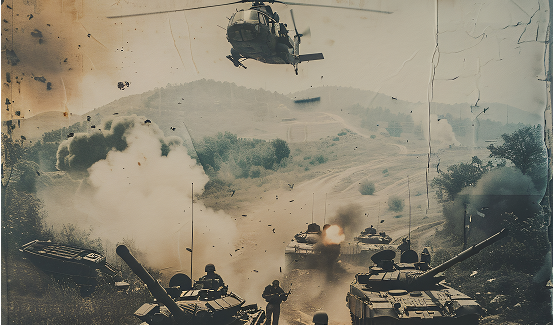When people hear the word PTSD, they often think about soldiers in war zones. That is natural. I served, and I have seen what war can do. Explosions, gunfire, and danger are easy to picture. What is harder to see are the wounds that stay inside. Many believe PTSD ends when the battle does. That is not true. PTSD does not stay on the battlefield. It comes home. It follows you into your bedroom, your workplace, and your quiet moments. It shows up without warning. That is what I wanted to write about in Blood, Tears, and Purple Hearts.
PTSD Is Not Always What You Think
People expect PTSD to look like shaking hands and flashbacks. Sometimes it does. However, it can also manifest as silence, numbness, or sudden anger. It can make you feel unsafe even in peaceful places. It can make you pull away from people who love you. In the book, my main character, Lieutenant-Commander Ali Cabrillo, experiences trauma during a failed mission. She loses a close friend and suffers physical injuries. However, her deepest wounds are invisible. She struggles with guilt, fear, and emotional pain that she cannot name right away. That is how PTSD often works. It hides.
PTSD Happens Outside of War Too
While writing this story, I spoke with people who had never served in the military. Still, they told me they saw themselves in Ali’s pain. PTSD does not belong only to veterans. Survivors of abuse, accidents, illness, or grief can also suffer from it. Trauma looks different for everyone. What matters is how it changes how you see the world. One moment can change your whole life. It can make normal things feel dangerous. PTSD is more than memory. It is the body’s way of protecting itself, even when the danger has already passed.
The Weight of Keeping It All Inside
Ali is a leader. She is respected, strong, and skilled. She wants to stay in control. She pushes her emotions away. She tells herself to keep moving. That is something many people do. They feel they must be strong for others. They believe asking for help is a weakness. I have seen this in real life. I have spoken with veterans who tried to hide their pain. They smiled when they felt like crying. They stayed quiet when they needed to speak. That silence can be heavy. It can break you down. It nearly breaks Ali too.
What Recovery Really Looks Like
In the story, Ali goes through a slow and painful recovery. It takes time. It takes people. She meets others who are fighting their own battles. Some are stronger than they seem. Others are falling apart quietly. Together, they try to rebuild themselves piece by piece. This is true in real life too. Healing from PTSD does not happen in a day. It may never fully go away. But it gets lighter. With therapy, support, and care, people can find their way forward. They can create a new life with meaning and peace.
This Is More Than a War Story
I wrote this book not just to show what happens in combat. I wanted to show what happens after. When the uniforms come off. When the mission is over. When you are left alone with your thoughts. That is where the real battle begins. Ali’s story is not just about war. It is about grief. It is about learning to forgive yourself. It is about finding the strength to ask for help. It is about hope. Even when things feel broken, there is always a way forward.
Everyone Deserves to Be Heard
One of the most touching things I have heard from readers is this: “I saw myself in this story.” That means everything to me. Whether you are a veteran or not, you matter. Your story matters. Your pain is real and you are not alone. If you know someone with PTSD, be kind. Be patient. They may not tell you everything. They may pretend to be fine. But they are carrying something heavy. Your support can mean more than you know. If you are the one carrying pain, please know this. You are not weak. You are not broken. You are surviving. And there is help. There is healing. There is still hope.
Why Stories Like This Matter
PTSD is often misunderstood. It is shown in movies as something dramatic or dangerous. But real PTSD can be quiet. It can look like withdrawal, shame, or silence. Books like Blood, Tears, and Purple Hearts help show the truth. Stories open doors. They help people feel seen. They help others understand. My goal with this book is to create a bridge between veterans and civilians. To show what cannot always be explained. To remind people that we are all human. We all feel. We all hurt. And we all need connection.
What Will Happen Next
Ali’s story is filled with questions. Will she find peace? Can she forgive herself? Who else will survive the war inside? These are not just storylines. These are questions many people live with every day.
Pre-order the book now on Amazon and read it. Let the story speak to you. Let it open your heart. Let it remind you that healing is possible. To learn more, visit the official author website for exclusive updates, articles, and upcoming releases.
